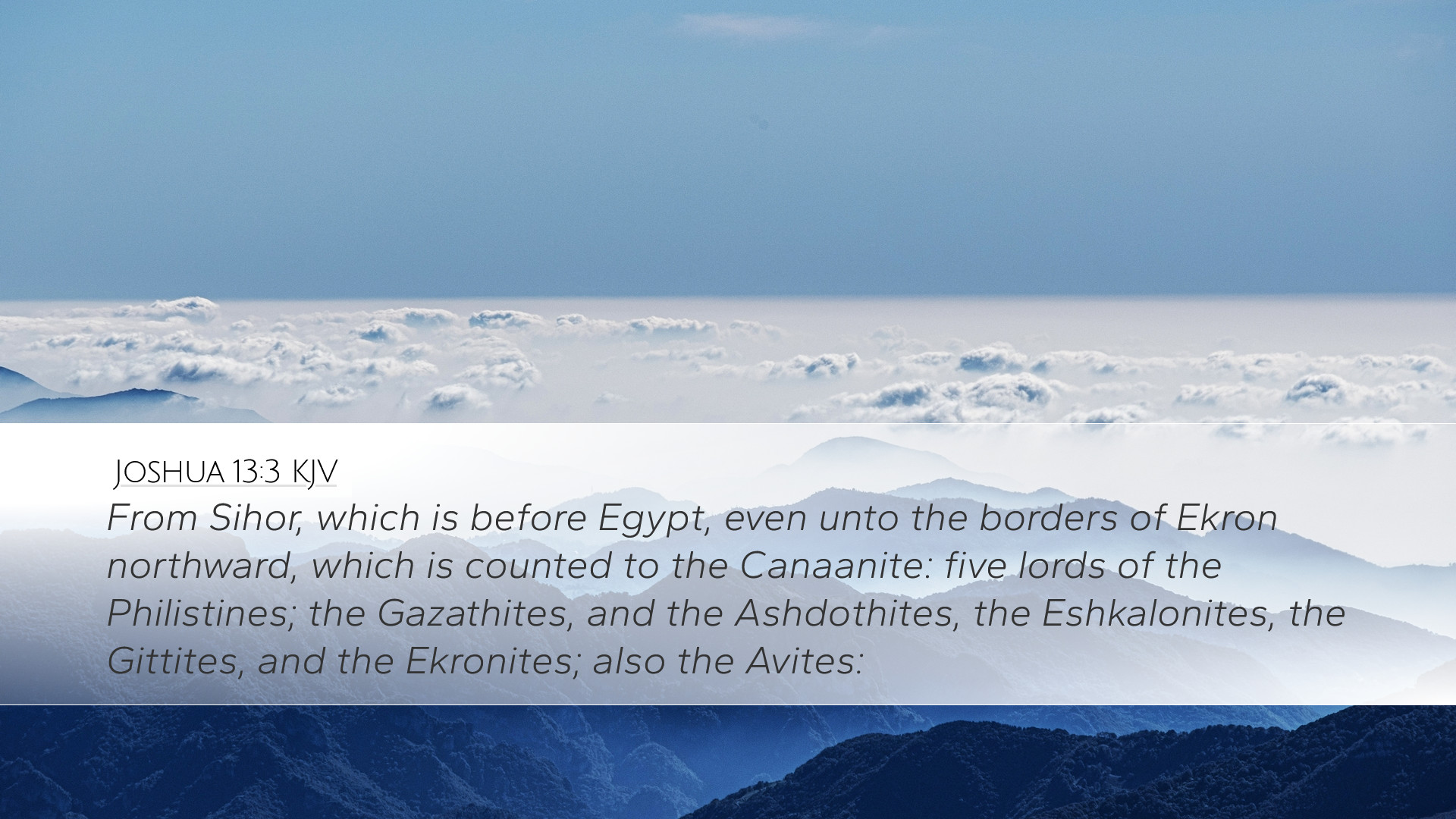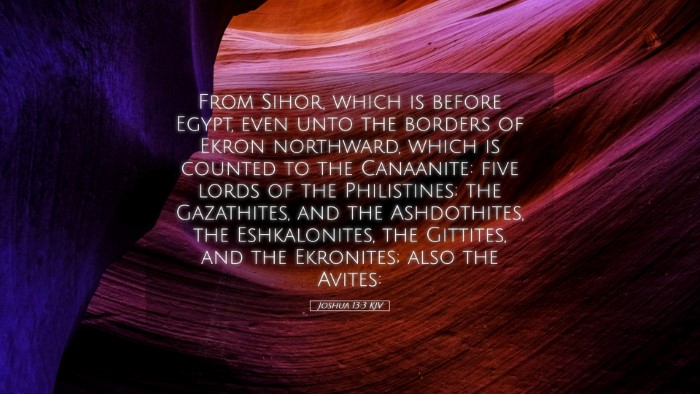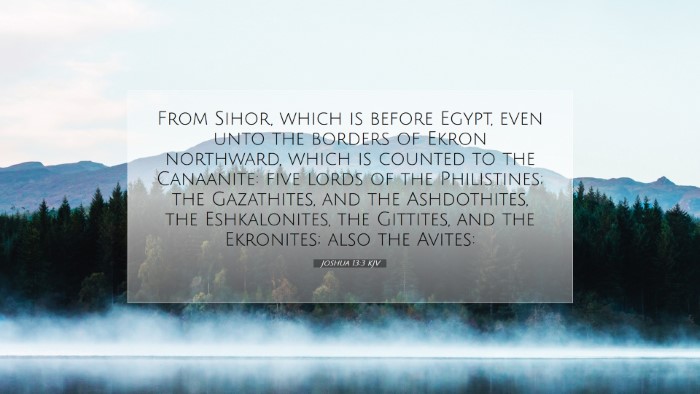Commentary on Joshua 13:3
Verse Context: Joshua 13:3 states, “But the rest of the fish, their land that was not gone to war, was only for the tribes of the people of Gad, and the half tribe of Manasseh, and the rest of the people.” The significance of this passage lies in its delineation of territorial divisions among the tribes of Israel as they began to settle in the Promised Land.
Historical Background
This verse occurs in the context of Israel's settlement in Canaan, post-exodus. Historically, this moment is significant, as it illustrates the transition from a nomadic lifestyle to one of settled society. The tribes mentioned—Gad and Manasseh—represent groups that settled east of the Jordan, which indicates the diverse settlement patterns of the Israelites.
Theological Insights
The different allocations of land carry deep theological implications. The LORD’s provision for the people illustrates His faithfulness to His promises made to Abraham, Isaac, and Jacob regarding their descendants. The distribution of land not only serves as a physical possession but also as a sign of God’s covenant relationship with His people.
God’s Sovereignty in Distribution
Albert Barnes points out that the territories given to the tribes were divinely orchestrated. The allocation appears to highlight God's sovereign will, ensuring that each tribe receives its due inheritance. Such insights remind believers that God's governance supersedes human plans.
Responsibility of the Tribes
Adam Clarke emphasizes that, while each tribe received land, they were also charged with the responsibility to uphold justice and maintain God’s laws within their boundaries. This duality of privilege and responsibility serves as a constant reminder for current believers of their calling within their communities.
Reflections on the Tribes of Gad and Manasseh
The mention of Gad and Manasseh specifically highlights their unique position among their brethren.
- Gad: Often characterized as a warrior tribe, their focus on military prowess is juxtaposed with their geographical allocation, suggesting a need for vigilance in maintaining their inheritance.
- Manasseh: The half-tribe, receiving land on both sides of the Jordan, grapples with identity, straddling the line between integration and distinctiveness among the other tribes.
Applications for Today's Believers
This passage offers profound insights for contemporary believers, particularly in understanding God’s providential care in personal and communal life.
God’s Guidance in Our Inheritance
Just as the Israelites trusted in God’s guidance for their inheritance, modern believers are encouraged to seek divine direction when considering their own 'inheritance'—be it in vocation, family, or ministry. The participation of Gad and Manasseh demonstrates how faith takes root in specific contexts of life.
Unity Among Diversity
The setting of tribes with diverse roles and responsibilities provides a model for unity amid diversity in the church today. Embracing differing roles, talents, and places of service can enrich church life and reflect the paint of God's creation.
Conclusion
Joshua 13:3 acts not only as a historical record but also as a theological treatise on the nature of God’s promises and the responsibilities intertwined with them. It invites modern readers to engage deeply with God’s Word, understanding both the blessings they have received and the call to faithful stewardship in their respective lives.


